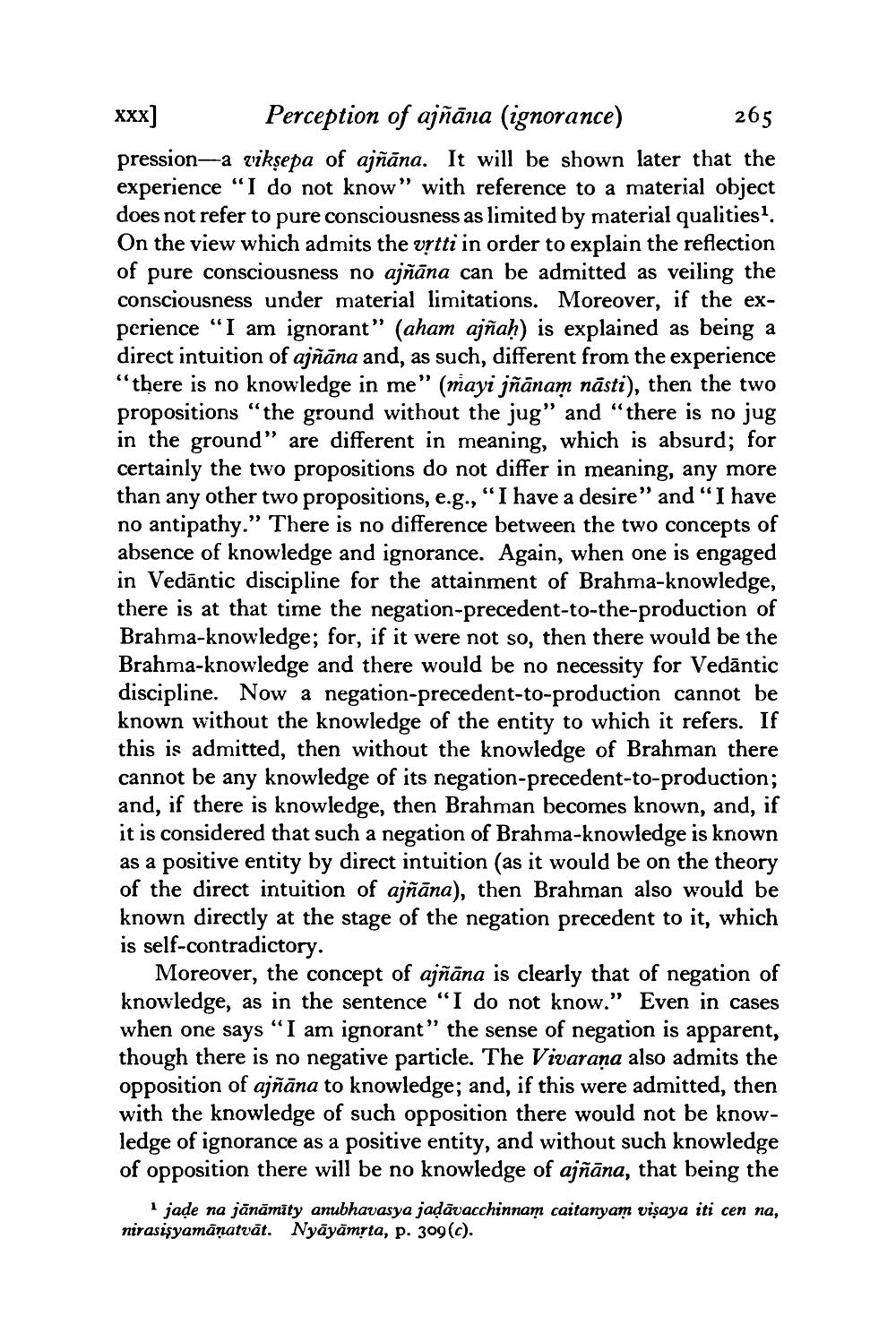________________
XXX] Perception of ajñāna (ignorance) 265 pression—a viksepa of ajñāna. It will be shown later that the experience "I do not know” with reference to a material object does not refer to pure consciousness as limited by material qualities. On the view which admits the vrtti in order to explain the reflection of pure consciousness no ajñāna can be admitted as veiling the consciousness under material limitations. Moreover, if the experience “I am ignorant" (aham ajñaḥ) is explained as being a direct intuition of ajñāna and, as such, different from the experience “there is no knowledge in me" (mayi jñānam nāsti), then the two propositions "the ground without the jug" and "there is no jug in the ground" are different in meaning, which is absurd; for certainly the two propositions do not differ in meaning, any more than any other two propositions, e.g., “I have a desire” and “I have no antipathy." There is no difference between the two concepts of absence of knowledge and ignorance. Again, when one is engaged in Vedāntic discipline for the attainment of Brahma-knowledge, there is at that time the negation-precedent-to-the-production of Brahma-knowledge; for, if it were not so, then there would be the Brahma-knowledge and there would be no necessity for Vedāntic discipline. Now a negation-precedent-to-production cannot be known without the knowledge of the entity to which it refers. If this is admitted, then without the knowledge of Brahman there cannot be any knowledge of its negation-precedent-to-production; and, if there is knowledge, then Brahman becomes known, and, if it is considered that such a negation of Brahma-knowledge is known as a positive entity by direct intuition (as it would be on the theory of the direct intuition of ajñāna), then Brahman also would be known directly at the stage of the negation precedent to it, which is self-contradictory.
Moreover, the concept of ajñāna is clearly that of negation of knowledge, as in the sentence "I do not know.” Even in cases when one says “I am ignorant” the sense of negation is apparent, though there is no negative particle. The Vivarana also admits the opposition of ajñāna to knowledge; and, if this were admitted, then with the knowledge of such opposition there would not be knowledge of ignorance as a positive entity, and without such knowledge of opposition there will be no knowledge of ajñāna, that being the
jade na jānāmīty anubhavasya jadāvacchinnam caitanyam visaya iti cen na, nirasisyamanatvāt. Nyāyāmsta, p. 309(c).




